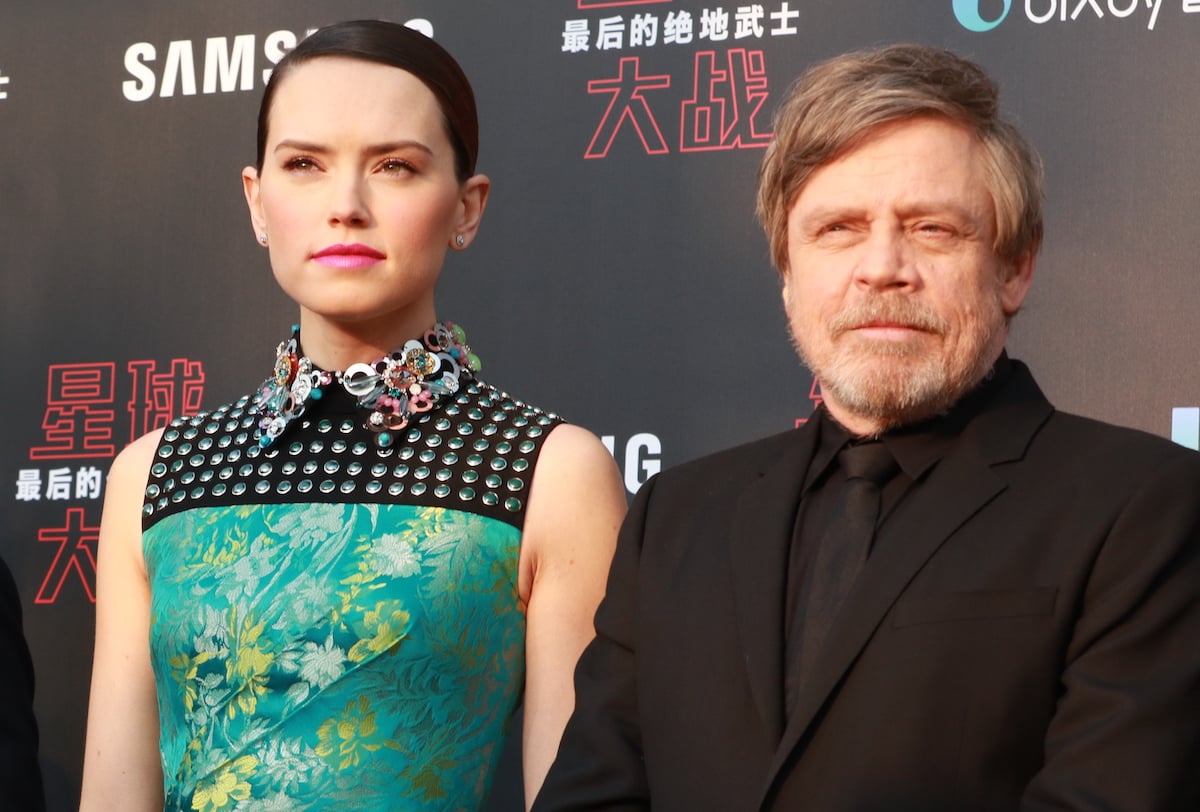‘Star Wars’: The Saga Still Needs to Follow Through on the End of ‘The Last Jedi’
Director Rian Johnson recently praised George Lucas’ divisive prequel trilogy. But Star Wars fans have yet to fully embrace Johnson’s own contribution to the saga. However, 2017’s Star Wars: The Last Jedi still hasn’t been fully explored. And considering how its ending impacts the franchise, it deserves to be.

‘Star Wars: The Last Jedi’ is perhaps the most divisive entry in the saga
Understandably, Lucasfilm might be a bit reticent to build on Star Wars: The Last Jedi. After all, many fans consider Johnson’s movie a misfire. After The Force Awakens so successfully harkened back to the original trilogy, Johnson attempted to push the saga forward.
The Last Jedi, in large part, serves as a deconstruction of Star Wars itself. The movie questions the nature of the franchise and subverts audience expectations. Initially, Johnson may have alienated some fans but in an effort to broaden the scope of what Star Wars is and could be.
To that end, its final moments imply how Luke Skywalker’s (Mark Hamill) heroic actions will inspire the galaxy. On a more immediate level, he allowed the Resistance the chance to escape. But on a grander scale, Luke’s sacrifice led directly to a wider acceptance and accessibility of the Force.
The sequel trilogy never delivered on the promise of its ending
Fans who were disappointed by Star Wars: The Last Jedi often poke fun at “Broom Boy,” the character played by Temirlan Blaev. But his final scene underscores the aspirational quality in Luke’s actions. Even this slave boy — not unlike Anakin Skywalker himself — can use the Force.
So much of Star Wars has revolved around legacy, midi-chlorian counts, and the like. The Last Jedi attempts to create a universe in which a person from nowhere could become a powerful force for good or evil. In Johnson’s view, this applies to Rey (Daisy Ridley) as much as “Broom Boy.”
Rather than lean into this approach, many feel Star Wars: The Rise of Skywalker — despite its co-writer’s claims to the contrary — disregards Johnson’s movie. Director J.J. Abrams reverted back to the legacy theme, tying Rey’s past back to Palpatine (Ian McDiarmid).
The saga needs some direction after ‘The Rise of Skywalker’
With the Skywalker saga finally complete, Star Wars requires some new direction going forward. And the destiny of The Last Jedi — to open up the Force — could still be fulfilled. In fact, The Rise of Skywalker itself even offers a plot detail that the saga could explicitly tie into Johnson’s movie.
In The Rise of Skywalker, Finn (John Boyega) and Jannah (Naomi Ackie) both realize their own Force sensitivity. The movie implies but never outright acknowledges this is how they both broke from their First Order training. Much like “Broom Boy,” the Force has indeed awakened within them.
As of now, Star Wars fans have no clue what the saga’s big-screen future holds. But Johnson is supposedly still attached to develop his own trilogy. With any luck, The Last Jedi director can expand his own vision if he makes another entry, regardless of whether or not “Broom Boy” himself returns.


